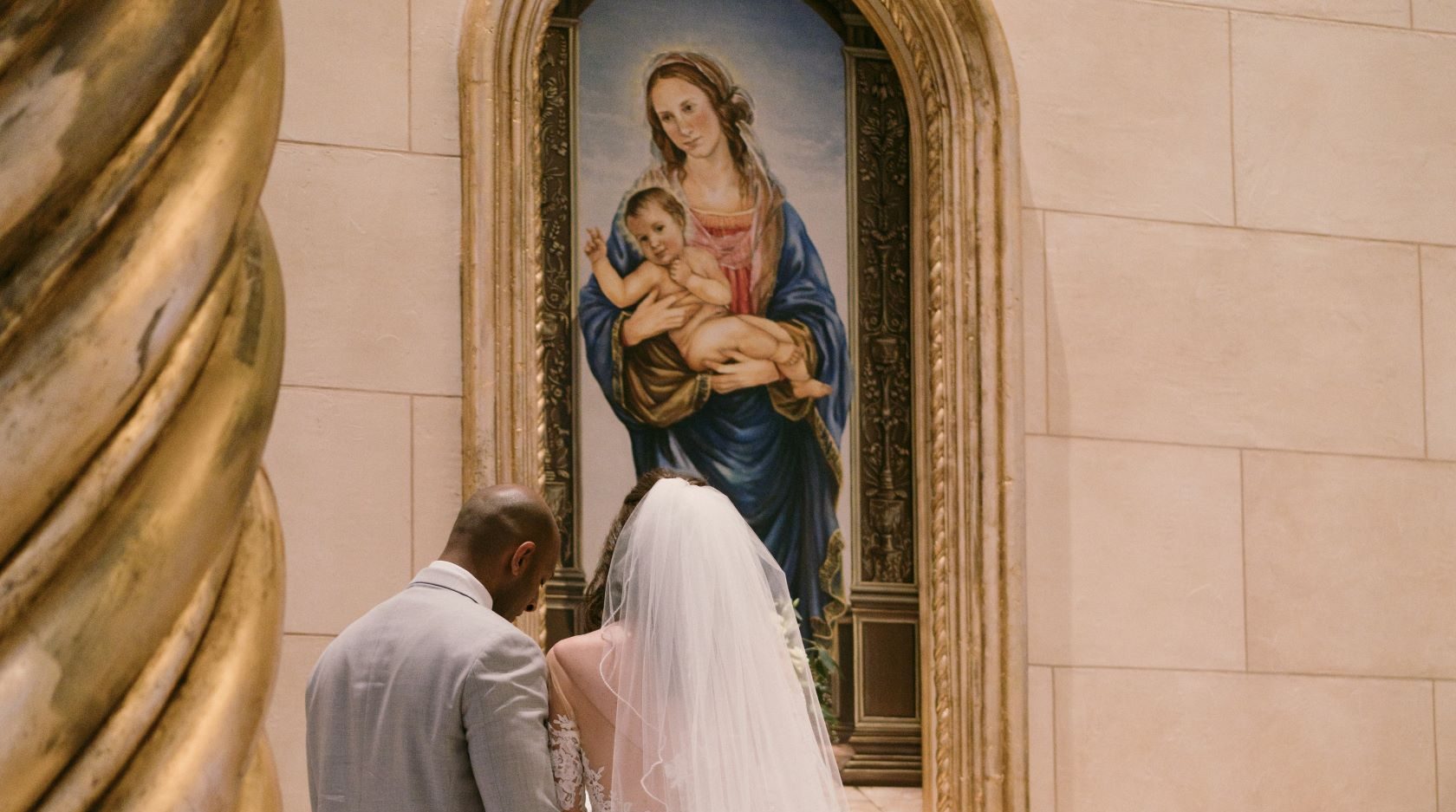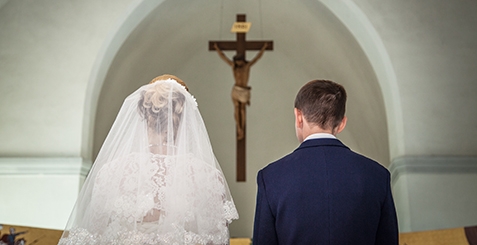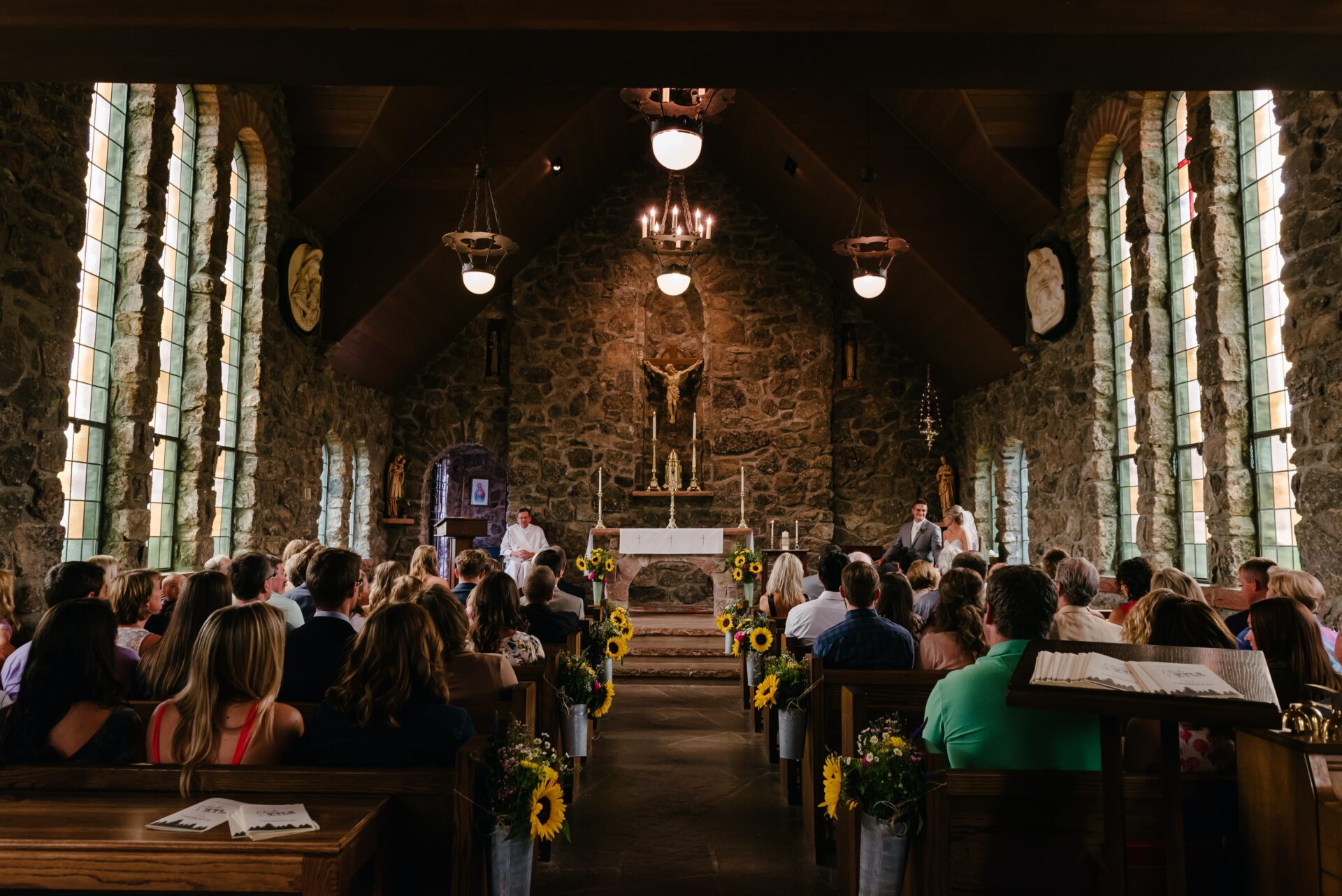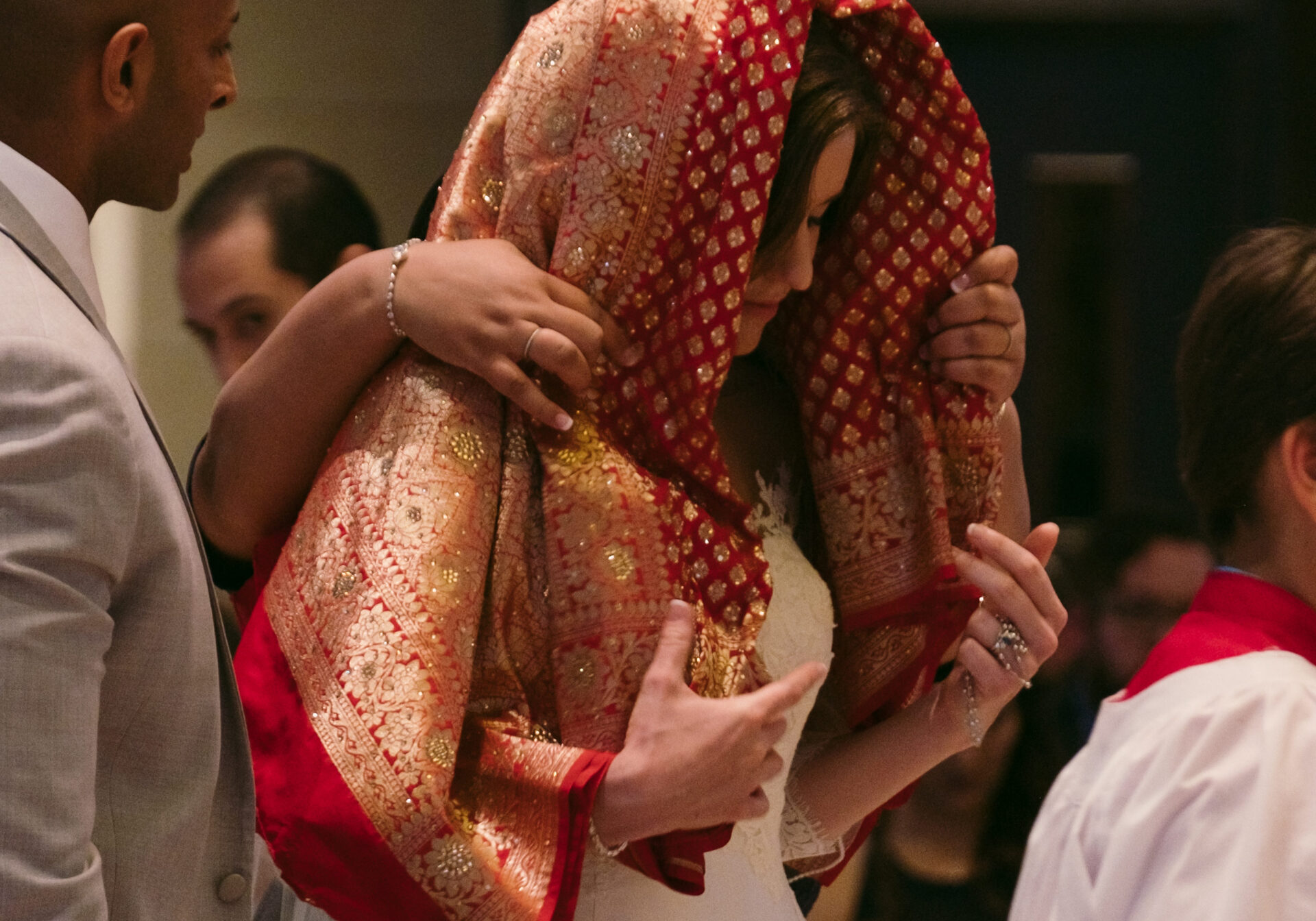Why does the church teach that marriage is a sacrament?
The sacraments make Christ present in our midst. Like the other sacraments, marriage is not just for the good of individuals, or the couple, but for the community as a whole. The Catholic Church teaches that marriage between two baptized persons is a sacrament. The Old Testament prophets saw the marriage of a man and woman as a symbol of the covenant relationship between God and his people. The permanent and exclusive union between husband and wife mirrors the mutual commitment between God and his people. The Letter to the Ephesians says that this union is a symbol of the relationship between Christ and the Church.
Do Catholics ever validly enter into non-sacramental marriages?
Yes. Marriages between Catholics and non-Christians, while they may still be valid in the eyes of the Church, are non-sacramental. With permission, a priest or deacon may witness such marriages.
What is the difference between a valid and an invalid Catholic marriage?
Just as individual states have certain requirements for civil marriage (e.g., a marriage license, blood tests), the Catholic Church also has requirements before Catholics can be considered validly married in the eyes of the Church. A valid Catholic marriage results from four elements: (1) the spouses are free to marry; (2) they freely exchange their consent; (3) in consenting to marry, they have the intention to marry for life, to be faithful to one another and be open to children; and (4) their consent is given in the presence of two witnesses and before a properly authorized Church minister. Exceptions to the last requirement must be approved by church authority.
If a Catholic wants to marry a non-Catholic, how can they assure that the marriage is recognized by the Church?
In addition to meeting the criteria for a valid Catholic marriage (see question #3), the Catholic must seek permission from the local bishop to marry a non-Catholic. If the person is a non-Catholic Christian, this permission is called a “permission to enter into a mixed marriage.” If the person is a non-Christian, the permission is called a “dispensation from disparity of cult.” Those helping to prepare the couple for marriage can assist with the permission process.
Why does a Catholic wedding have to take place in a church?
For Catholics, marriage is not just a social or family event, but a church event. For this reason, the Church prefers that marriages between Catholics, or between Catholics and other Christians, be celebrated in the parish church of one of the spouses. Only the local bishop can permit a marriage to be celebrated in another suitable place.
If a Catholic wishes to marry in a place outside the Catholic church, how can he or she be sure that the marriage is recognized by the Catholic Church as valid?
The local bishop can permit a wedding in another church, or in another suitable place, for a sufficient reason. For example, a Catholic seeks to marry a Baptist whose father is the pastor of the local Baptist church. The father wants to officiate at the wedding. In these circumstances, the bishop could permit the couple to marry in the Baptist church. The permission in these instances is called a “dispensation from canonical form.”
If two Catholics or a Catholic and non-Catholic are married invalidly in the eyes of the church, what should they do about it?
They should approach their pastor to try to resolve the situation.
When a Catholic marries a non-Catholic, must the non-Catholic promise to raise the children in the Catholic faith?
The non-Catholic spouse does not have to promise to have the children raised Catholic. The Catholic spouse must promise to do all that he or she can to have the children baptized and raised in the Catholic faith.
Is it required that a wedding celebration have expensive flowers, clothes and other accompaniments?
The Rite of Marriage makes no reference to any of these cultural elements. The focus of the couple should be on the celebration of the sacrament. Pastors repeatedly point out that a couple do not have to postpone the celebration of the Sacrament of Marriage because they cannot afford such things. See Budgeting for Your Wedding.
How much does it cost to get married in the Catholic Church?
Dioceses often regulate the stipend, or offering to the church, that is customary on the occasion of a wedding. Depending on different areas, this might also include the fee for the organist and vocalist. In a situation of true financial difficulty, couples can come to an agreement with their pastors so that true financial hardship will never prevent a Catholic marriage from taking place. For more information, see How Much Does it Cost to Marry in the Catholic Church?
What is a Nuptial Mass and when can a couple have one?
A Nuptial Mass is a Mass which includes the celebration of the sacrament of marriage. It has special readings and prayers suitable to the Sacrament of Marriage. The Sacrament of Marriage between two baptized Catholics should normally be celebrated within Mass.
If the situation warrants it and the local bishop gives permission, a Nuptial Mass may be celebrated for a marriage between a Catholic and a baptized person who is not a Catholic, except that Communion is not given to the non-Catholic since the general law of the church does not allow it. In such instances, it is better to use the appropriate ritual for marriage outside Mass. This is always the case in a marriage between a baptized Catholic and a non-baptized person.
Are weddings permitted on Sundays or during Lent?
Church law allows weddings to be held during most days of the year, except the Triduum. However, many parishes do not schedule weddings on Sundays because of the conflict with regularly scheduled Masses and other parish activities. In addition, some dioceses and parishes do not allow weddings during Lent, a season of penance.
What should a couple do when they decide that they want to marry in the Catholic Church?
They should contact their parish as soon as possible and make an appointment to talk with the priest, deacon or staff person who is responsible for preparing couples for marriage. This person will explain the process of marriage preparation and the various programs that are offered.
Why does the church require engaged couples to participate in a marriage preparation program?
Marriage preparation offers couples the opportunity to develop a better understanding of Christian marriage; to evaluate and deepen their readiness to live married life; and to gain insights into themselves as individuals and as a couple. It is especially effective in helping couples to deal with the challenges of the early years of marriage.
What kinds of marriage preparation programs does the church offer?
Depending on the diocese and the parish, several may be available. Programs include a weekend program with other couples, such as Catholic Engaged Encounter, a series of sessions in large or small groups or meetings with an experienced married couple. Some programs may be offered in Spanish and other languages. Specific programs address particular circumstances, such as remarriage, children brought into the marriage and marriage to a non-Catholic. As part of their preparation, many couples complete a premarital inventory, such as FOCCUS, to identify issues for further discussion.
What key issues are covered in marriage preparation?
Marriage preparation programs help couples to understand the Christian and the human aspects of marriage. Typical topics include: the meaning of marriage as a sacrament; faith, prayer and the church; roles in marriage; communication and conflict resolution; children, parenthood and Natural Family Planning; finances; and family of origin.
Is there a cost for marriage preparation programs?
Most programs charge a modest fee to cover the cost of materials. Programs that require an overnight stay will include an additional cost for rooms and meals. Assistance is frequently available for couples who would otherwise be unable to participate.
Does the church offer any programs to help couples to improve their marriage?
Yes. Peer ministry for married couples is widespread. Many couples meet in parish-based small groups; ministries such as Teams of Our Lady, Couples for Christ, and Christian Family Movement also use the small group approach. The Marriage Enrichment Weekend Program is offered in several states. Some parishes sponsor a retreat day or evening of reflection for married couples. Others offer a mentoring system that matches older couples with younger ones. Throughout the country, many couples participate in Marriage Encounter, which offers a weekend experience and ongoing community support.
What can a couple do if their marriage is in trouble?
Parish priests, deacons and other pastoral ministers are available to talk to couples and to refer them to counselors and programs that can assist them. Retrouvaille (Ree-tru-VEYE) is an effective program that helps to heal and renew marriages in serious trouble. The Third Option is another program that is available in some parts of the country.
What is an annulment?
An annulment is a declaration by a tribunal (Catholic church court) that a marriage thought to be valid according to Church law actually fell short of at least one of the essential elements required for a binding union (see question #3). Unlike civil divorce, an annulment does not erase something that was already there, but rather it is a declaration that a valid marriage was never actually brought about on the wedding day. A declaration of nullity does not deny that a relationship ever existed between the couple, or that the spouses truly loved one another.
How can a couple married 20 years get an annulment?
The annulment process examines the events leading up to, and at the time of, the wedding ceremony, in an effort to determine whether what was required for a valid marriage was ever brought about. While a marriage of 20 years provides evidence that a couple had some capacity for a life-long commitment, the duration of their relationship in itself does not prove or negate the existence of the marriage bond.
If a marriage is annulled are the children from it considered illegitimate?
No. A declaration of nullity has no effect on the legitimacy of children, since the child’s mother and father were presumed to be married at the time that the child was born.
Are annulments expensive?
Fees associated with the annulment process vary within the U.S. Most tribunals charge between $200 and $1,000 for a standard nullity case. Fees are typically payable over time, and may be reduced or even eliminated in cases of financial difficulty. Other expenses may be incurred when consultation with medical, psychological, or other experts is needed.
How long does it take to get an annulment?
It usually takes 12 to 18 months to complete the entire process.







